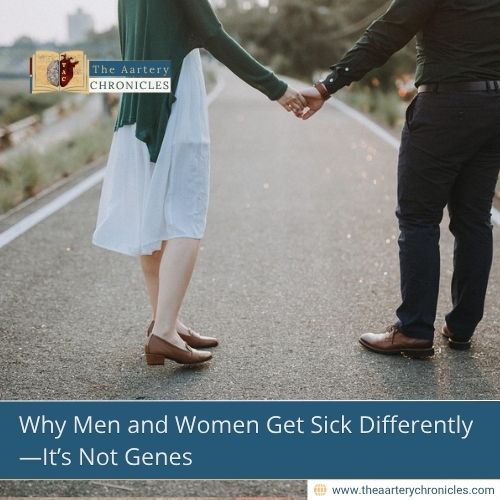

Why Men and Women Get Sick Differently—It’s Not Genes
A recent study led by researchers at Queen Mary University of London has revealed that the differences in health risks, symptoms, and outcomes between men and women aren’t just due to genetics. Social and lifestyle factors—like where people live, their jobs, education, and financial status—may have just as much, if not more, impact.
Study Analysed Thousands of Proteins
The study analysed data from 56,000 people and looked at nearly 6,000 proteins in the blood. These proteins are important because they can give clues about a person’s health and risk for certain diseases. Scientists wanted to see how these proteins differ between men and women, and whether genetics was the main reason for those differences.
Surprisingly, only a small number—about 100 proteins—showed differences that could be linked to genes behaving differently in men and women. This means that for most of the proteins, genes worked the same way in both sexes.
Genetic Insights Apply to Both Men and Women
Dr. Claudia Langenberg, one of the lead researchers, said the findings show that most genetic factors influence men and women similarly. This supports the idea that studies using genetic information can usually apply to both sexes without major adjustments.
However, Langenberg stressed that when it comes to health differences, looking only at biology isn’t enough. “Where people work, live, their lifestyle, education, and financial background all matter,” she said.
Implications for Personalised Medicine
The study supports the growing field of precision medicine, which aims to customise healthcare based on a person’s genetics, environment, and lifestyle.
“This is the biggest study yet to explore how our genetic code affects blood protein levels in men and women,” said Mine Koprulu, the study’s lead author. “It’s the first time researchers have been able to look this closely at the biology of both sexes.”
Conclusion
The researchers emphasise the importance of understanding not just the genetic, but also the social and environmental influences on health. This approach could lead to better, more personalised care for everyone, regardless of sex.
Their findings suggest that later-life health differences between men and women cannot be fully explained by genetics alone. More research is needed to understand how social and lifestyle factors contribute, so that healthcare can be tailored more fairly and effectively.
Source: Inputs from various media Sources

Priya Bairagi
Reviewed by Dr Aarti Nehra (MBBS, MMST)
I’m a pharmacist with a strong background in health sciences. I hold a BSc from Delhi University and a pharmacy degree from PDM University. I write articles and daily health news while interviewing doctors to bring you the latest insights. In my free time, you’ll find me at the gym or lost in a sci-fi novel.








